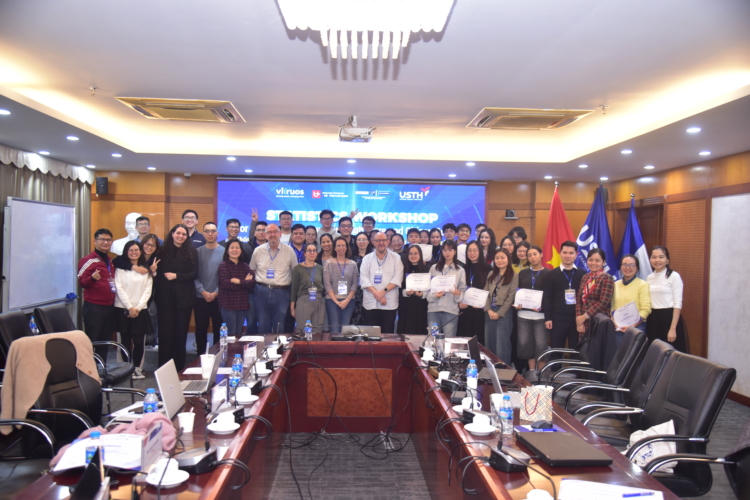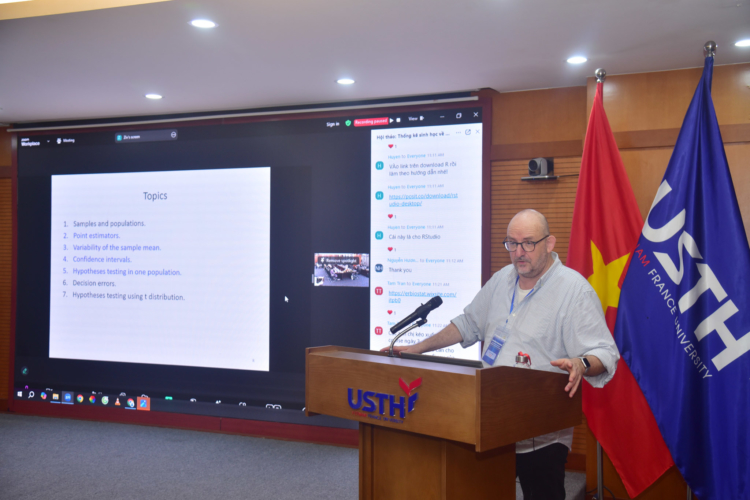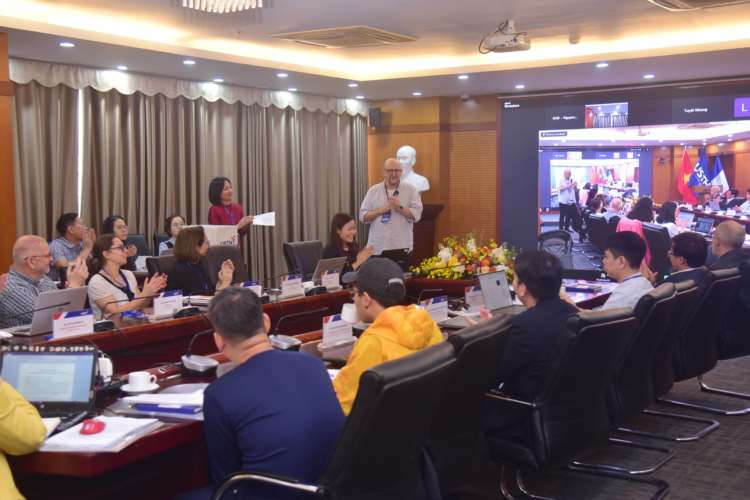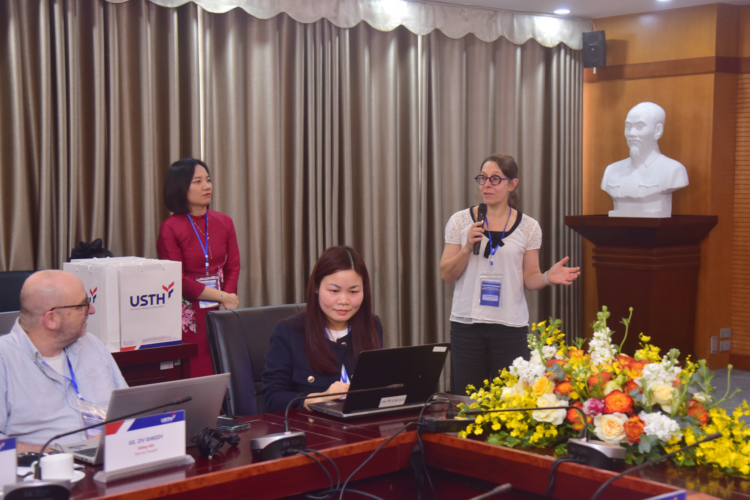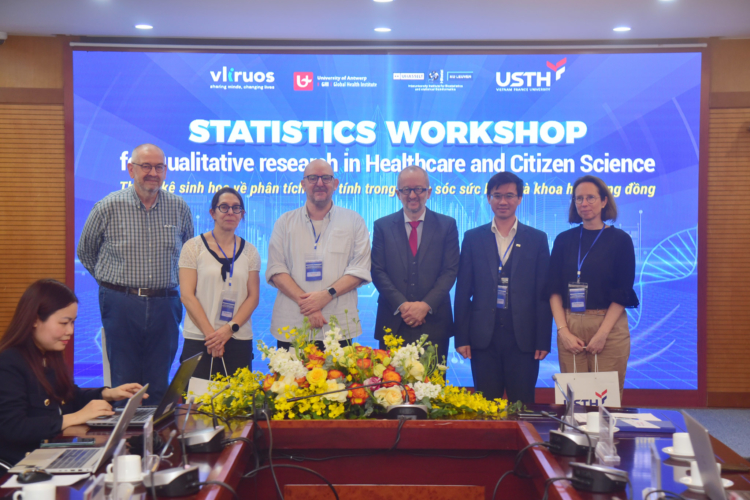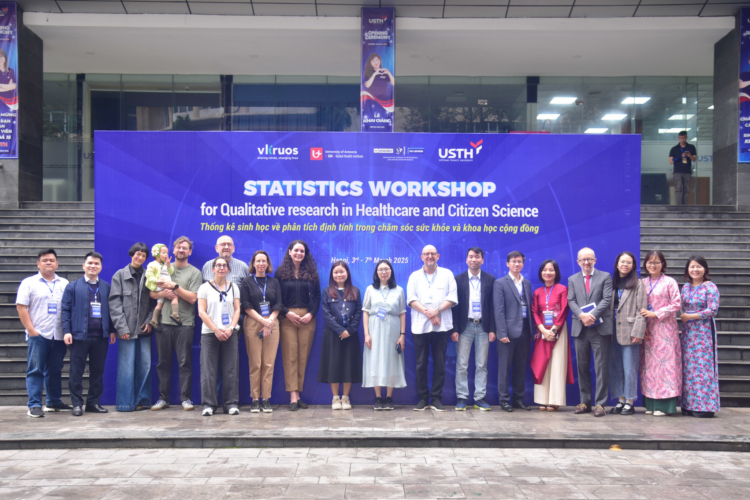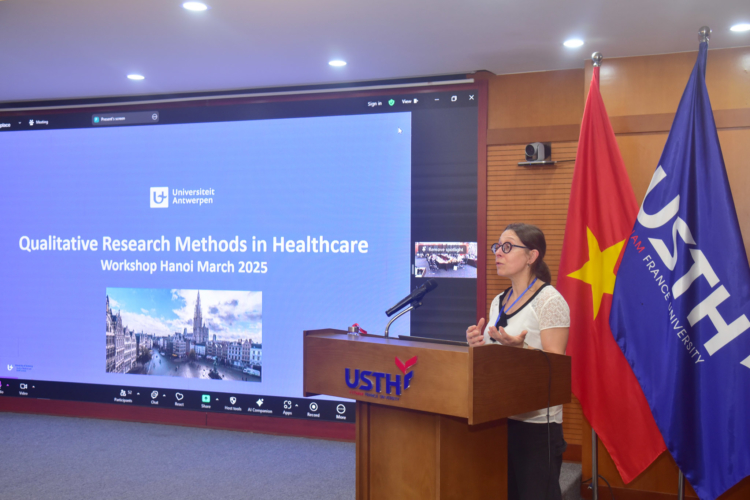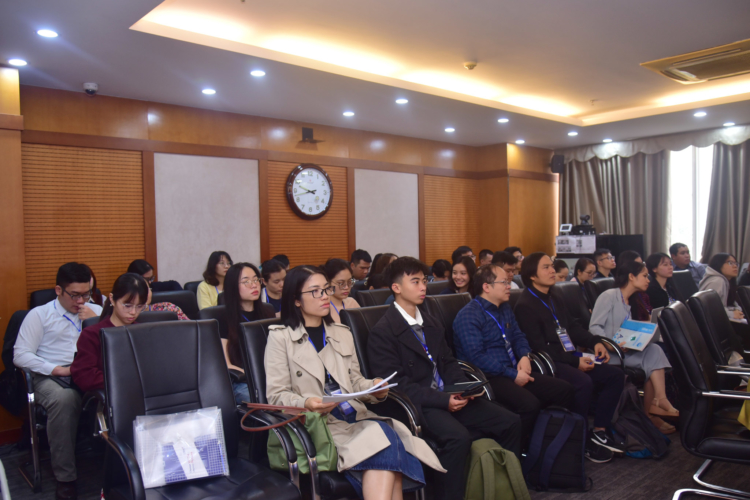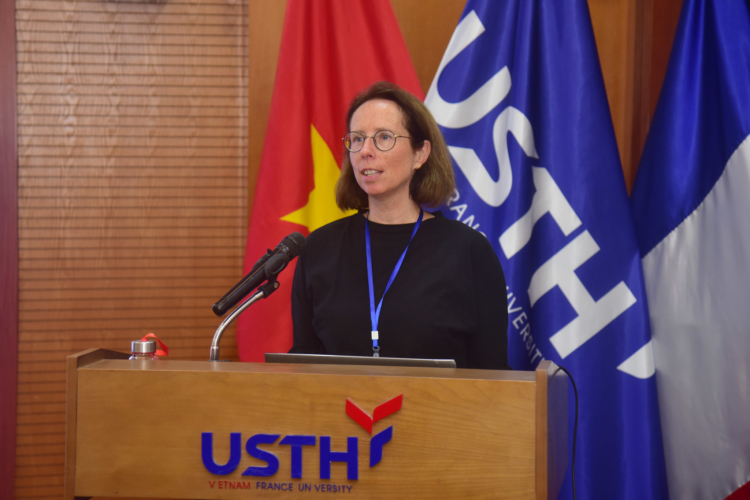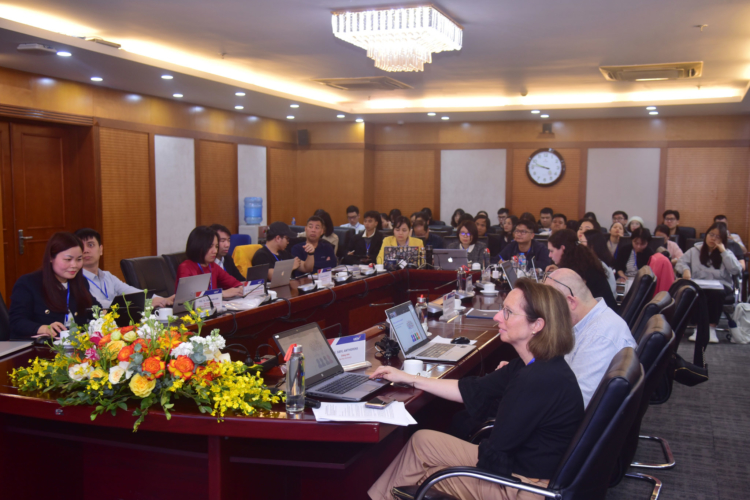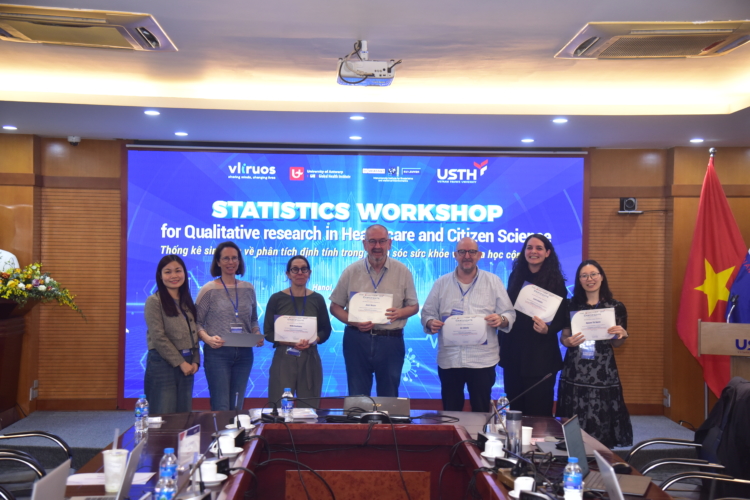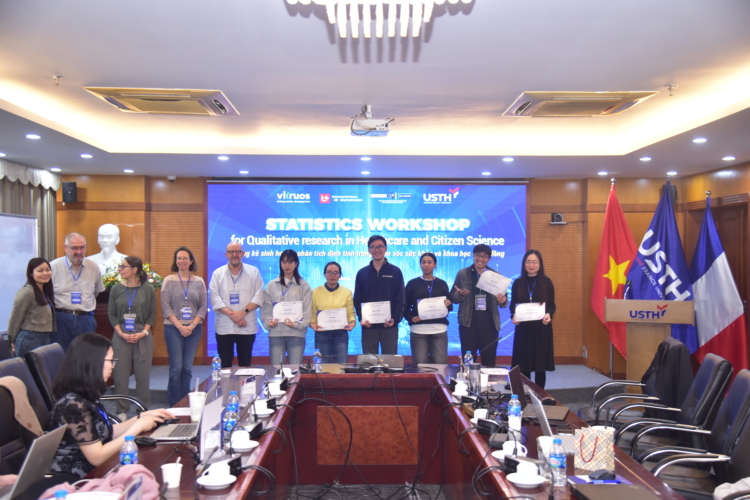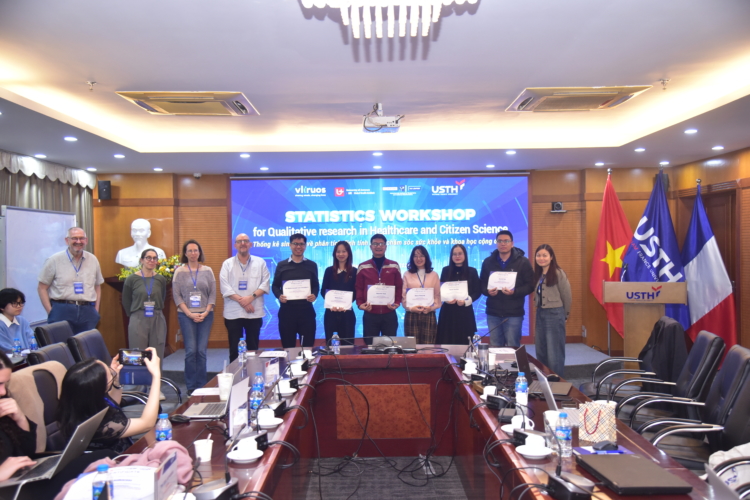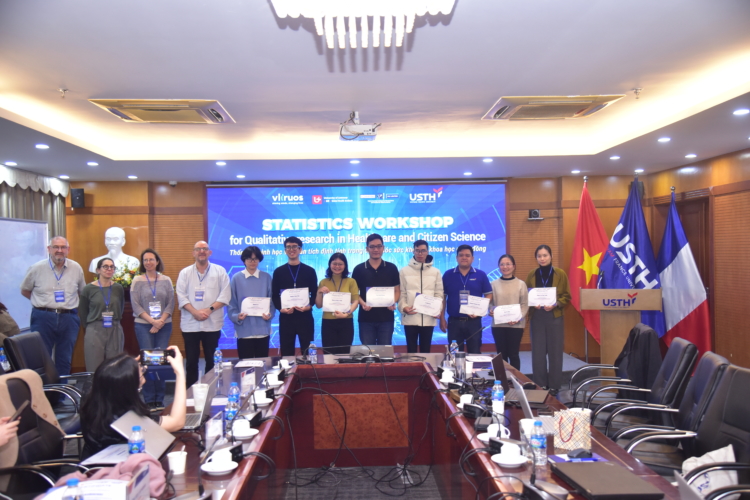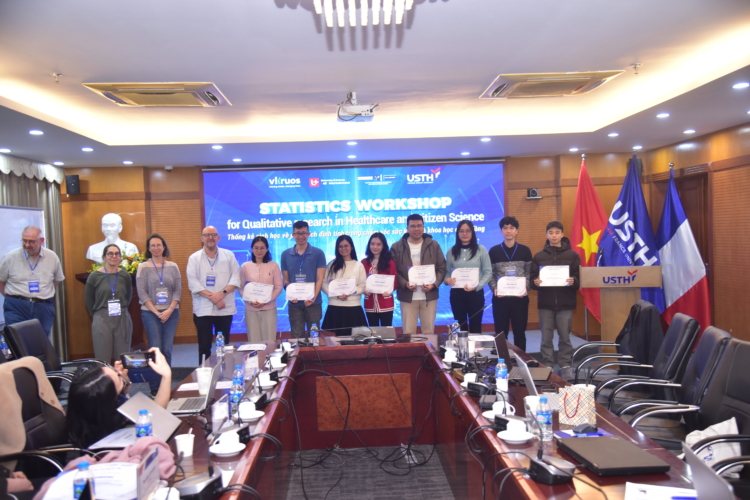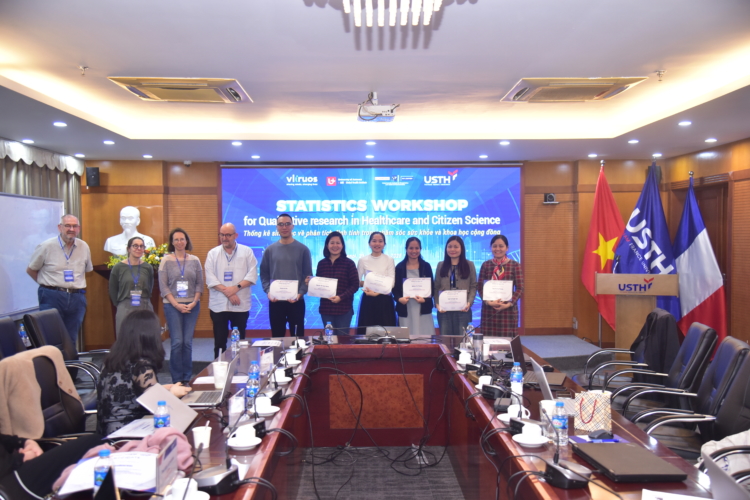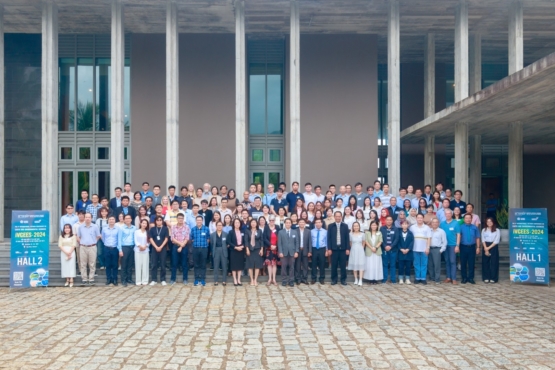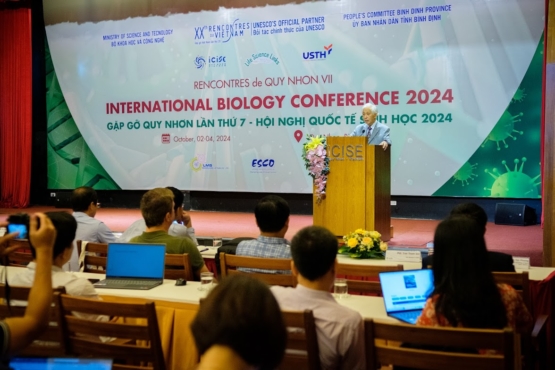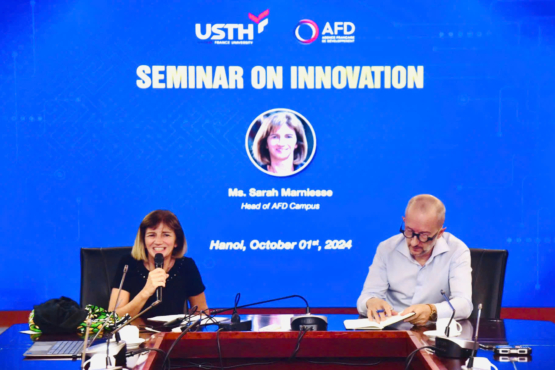From March 3 to 7, 2025, the University of Science and Technology of Hanoi (USTH), in collaboration with the University of Antwerp and Hasselt University (Belgium) and with funding from the Belgian Flemish Interuniversity Council for Development Cooperation (VLIR-UOS), successfully hosted a scientific workshop on “Qualitative Research in Healthcare and Citizen Science.”
The workshop officially commenced on March 3, 2025, with an opening speech by Prof. Jean-Marc Lavest, Principal Rector of USTH. He warmly welcomed the delegation of experts from Belgium and underscored the critical role of international collaboration in healthcare research and citizen science. Prof. Jean-Marc Lavest expressed his hope that the workshop would equip participants with valuable expertise and practical applications, enhancing research capacity and fostering future cooperation.
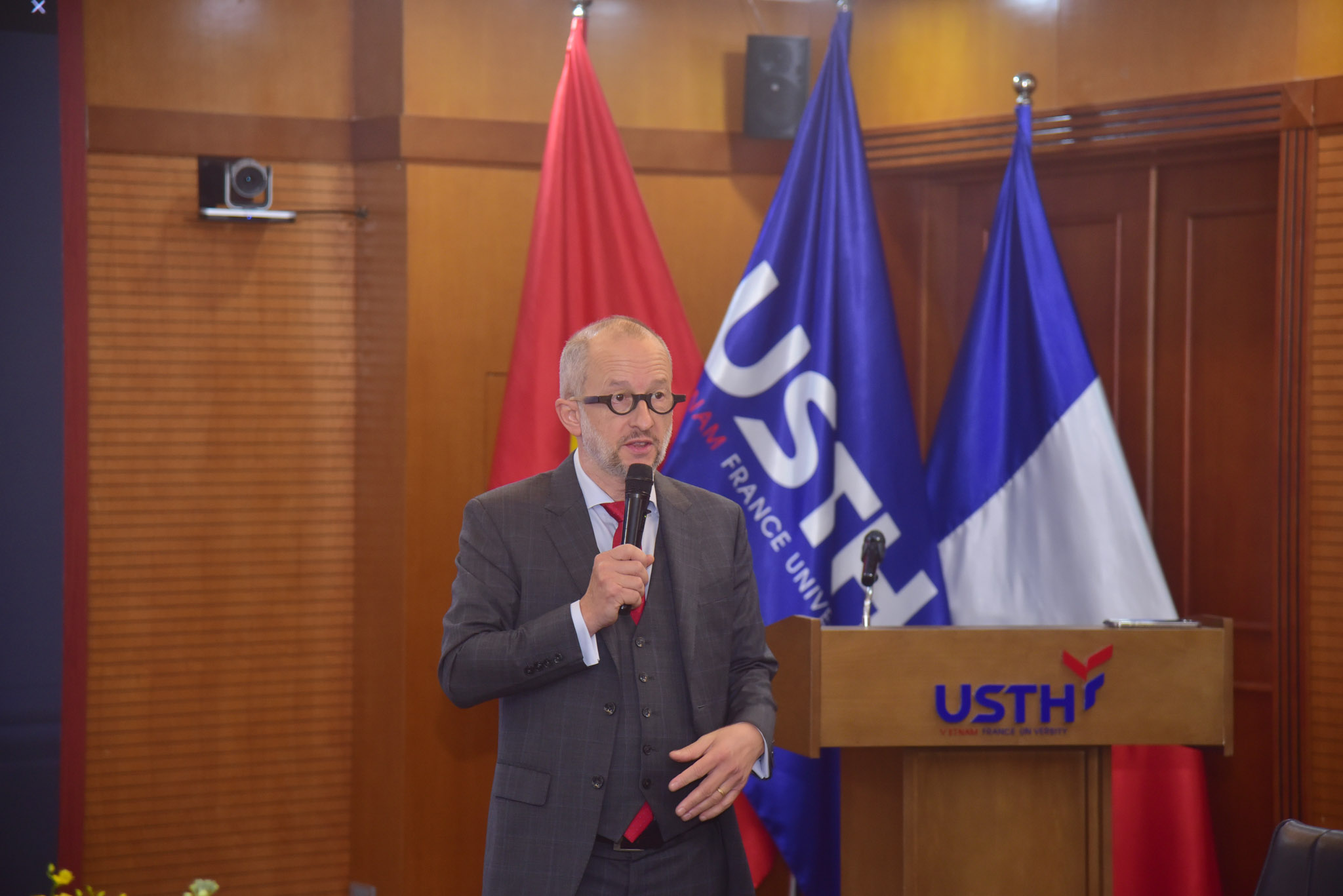
Designed to provide both theoretical foundations and hands-on applications, the workshop focused on statistical methods, qualitative research, and E-learning platform in education, with an emphasis on healthcare and citizen science. The event featured four specialized courses and attracted nearly 200 participants in both online and in-person formats, including researchers, lecturers, and students from various domestic and international institutions, including those from France, Belgium, Ethiopia, and Malaysia. The strong participation highlighted the growing academic interest in the workshop’s topics.
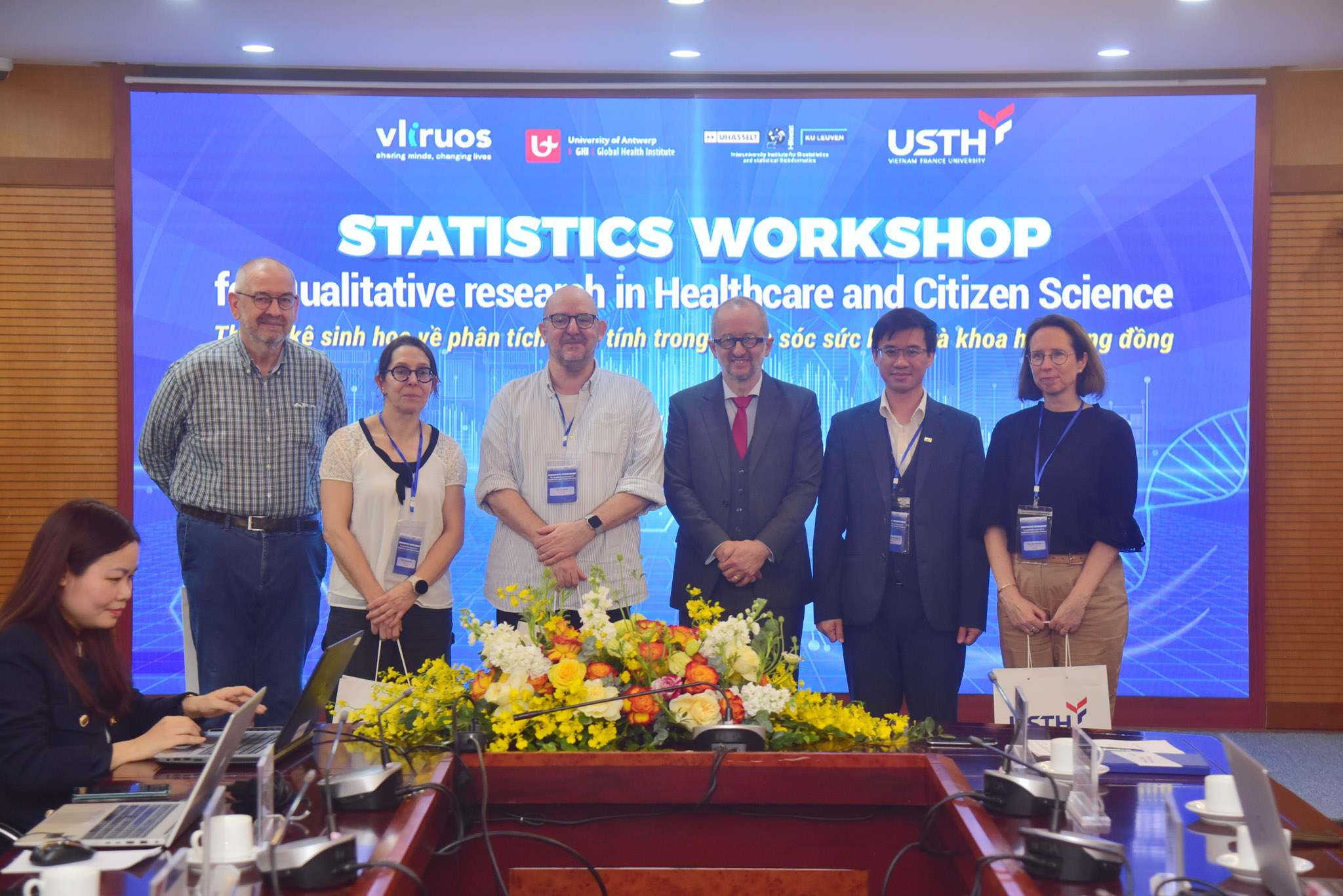
The workshop comprised four specialized courses, led by experienced professors and researchers from Hasselt University and University of Antwerp.
The course on Basic Concepts of Spatial Data Analysis, taught by Prof. Thomas Neyens from Hasselt University, introduced key spatial statistical methods, equipping participants with the tools needed to analyze spatially structured data in healthcare and environmental research. Topics covered included spatial data visualization, exploratory data analysis, and normalization methods to account for population differences across regions. The course also delved into statistical models such as Conditional Autoregressive (CAR) and Besag-York-Mollié (BYM), widely used in epidemiological mapping and ecological studies. These methods allow researchers to derive meaningful insights from spatial data and improve decision-making in public health and environmental monitoring.
Meanwhile, the Introduction to Qualitative Health Research course, delivered by Prof. Hilde Bastiaens and Prof. Sibyl Anthierens from University of Antwerp, provided a comprehensive introduction to qualitative research methods in healthcare. The course blended theoretical knowledge with hands-on practice, helping participants develop practical research skills. It covered core qualitative research concepts, including sampling techniques, data collection methods such as individual interviews and focus groups, and thematic data analysis techniques. Participants engaged in interview design, data collection exercises, and transcript analysis while discussing research ethics and quality assurance to ensure reliable and impactful study results.
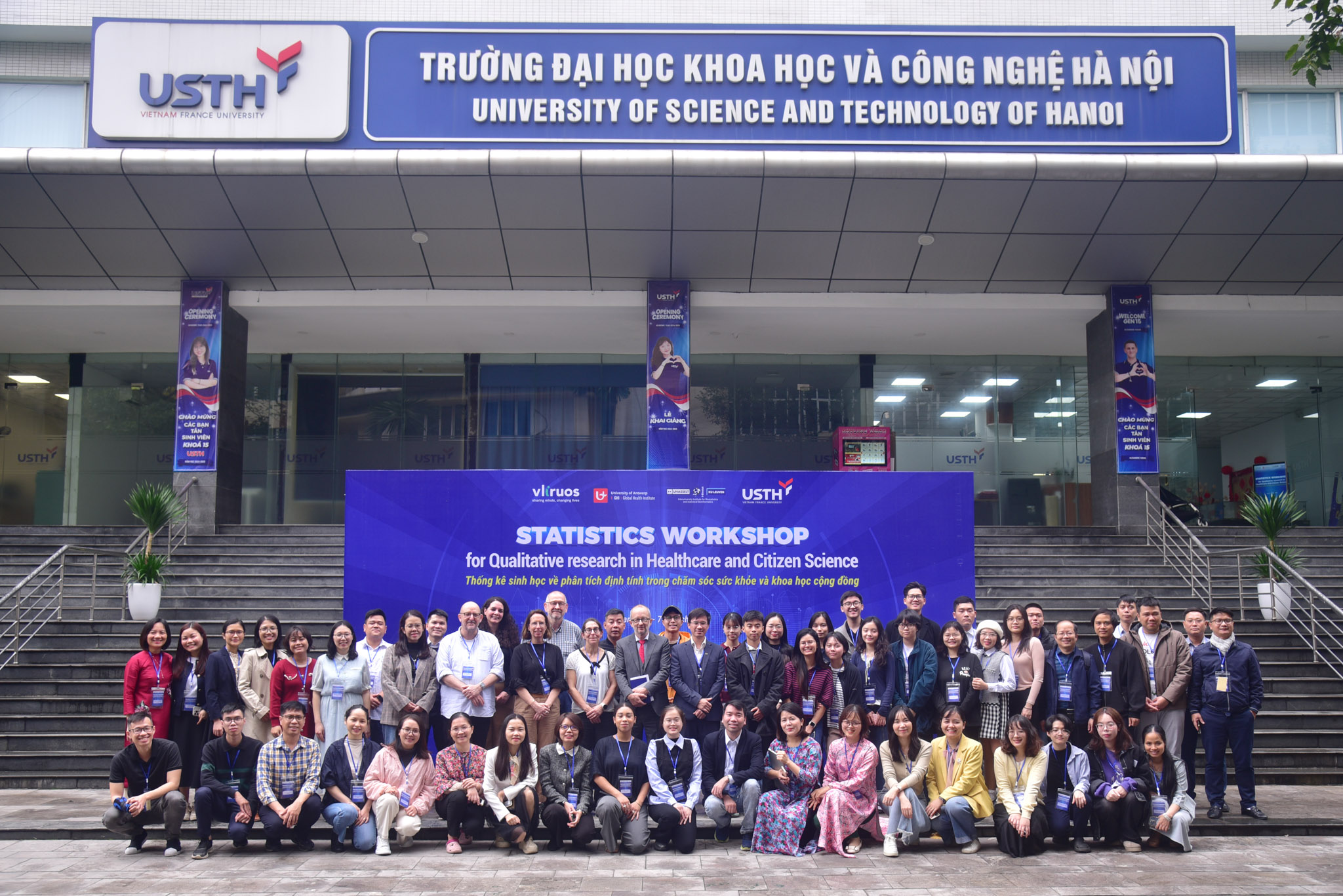
The Development of E-learning Education Platforms Using R course, instructed by Prof. Ziv Shkedy and Mrs. Nguyen Thi Huyen from Hasselt University, explored the application of R in digital education, focusing on statistical hypothesis testing, simple linear regression, and data visualization techniques. Participants learned how to use R for modeling and interpreting data, producing statistical outputs, and developing interactive e-learning platforms for statistical education. Designed with practical applications in mind, the course provided hands-on training with key analytical tools essential for data science and digital learning environments.
The final course, Study Design in Epidemiological Research: Beyond Traditional Concepts, taught by Prof. Joost Weyler from University of Antwerp, took a critical look at epidemiological study design, challenging traditional approaches and introducing modern methodologies. Participants explored key research questions related to healthcare practice (diagnosis, causation, prognosis) and how to translate these into robust study designs. The course also covered data collection and management techniques, distinguishing causation research from diagnostic studies. This course was invaluable for epidemiologists and healthcare professionals, equipping them with the tools to conduct high-quality scientific research in epidemiology and public health.
After five days of insightful discussions and interactive sessions, the workshop not only served as an academic platform but also facilitated networking and research collaborations. The participation of experts from multiple countries enriched discussions, fostering knowledge-sharing and interdisciplinary partnerships that could drive future joint research projects and academic cooperation.
The organizing committee extended its deepest appreciation to VLIR-UOS, University of Antwerp, and Hasselt University for their active support and collaboration in making the event a success. USTH expressed its commitment to continuing partnerships with VLIR-UOS and Belgian universities to host more scientific events that enhance research capacity and applied scientific development in the future.
Some remarkable moments of the event:

